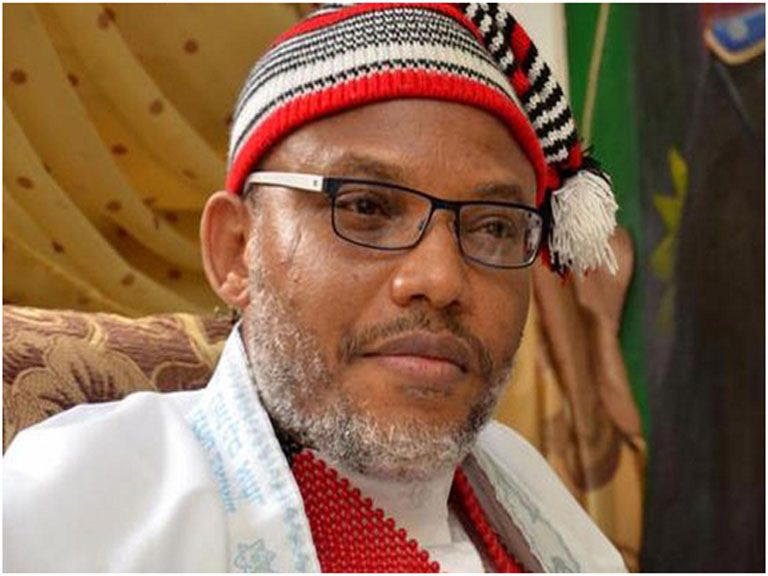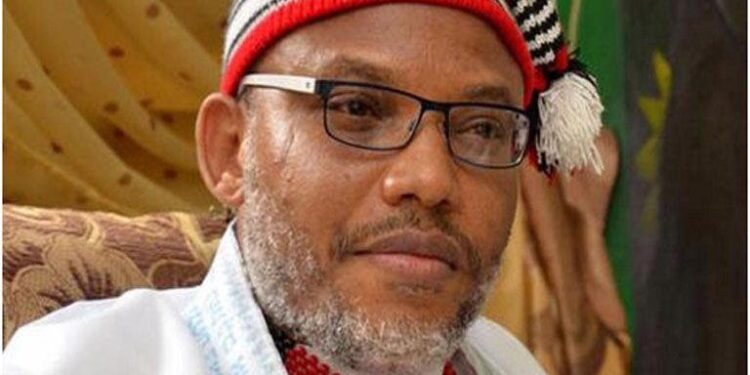A member of Mazi Nnamdi Kanu’s global legal consortium, Njoku Jude Njoku, has attributed the IPOB leader’s continued detention to legal mistakes by his former lawyers and executive overreach by the federal government. Njoku claimed that Kanu’s former legal team mishandled the case, allowing the government to exploit legal loopholes.
According to Njoku, a significant error was the failure to enforce the Court of Appeal’s October 13, 2025 ruling that discharged Kanu due to lack of jurisdiction. The government allegedly used a civil procedure rule (Order 6 Rule 1 of the Court of Appeal Rules) to challenge a criminal discharge, effectively reopening a closed case.
ruling that discharged Kanu due to lack of jurisdiction. The government allegedly used a civil procedure rule (Order 6 Rule 1 of the Court of Appeal Rules) to challenge a criminal discharge, effectively reopening a closed case.
Njoku criticized the Supreme Court for accepting the government’s appeal despite the Court of Appeal’s ruling that Nigeria had no legal right to try Kanu due to his alleged unlawful extradition from Kenya. He emphasized that a discharge based on jurisdiction is equivalent to an acquittal.
Njoku also pointed out that the repealed Terrorism Prevention Act (TPA) 2013 was wrongly used to file charges against Kanu, even though it had already been replaced by the Terrorism (Prevention and Prohibition) Act 2022. He argued that the new law’s Section 108(2) does not apply, as the Court of Appeal had already dismissed the case.
Njoku urged Kanu’s supporters to remain united and focus on the broader issues, including the abuse of civil rules in criminal cases and executive overreach. He expressed hope that the current legal team, with the involvement of experienced lawyers like Kanu Agabi SAN, might lead to a just resolution.
[8/7, 10:33 AM] Meta AI: A member of Mazi Nnamdi Kanu’s global legal consortium, Njoku Jude Njoku, has attributed the IPOB leader’s continued detention to legal mistakes by his former lawyers and executive overreach by the federal government. Njoku claimed that Kanu’s former legal team mishandled the case, allowing the government to exploit legal loopholes.
According to Njoku, a significant error was the failure to enforce the Court of Appeal’s October 13, 2022, ruling that discharged Kanu due to lack of jurisdiction. The government allegedly used a civil procedure rule (Order 6 Rule 1 of the Court of Appeal Rules) to challenge a criminal discharge, effectively reopening a closed case.
Njoku criticized the Supreme Court for accepting the government’s appeal despite the Court of Appeal’s ruling that Nigeria had no legal right to try Kanu due to his alleged unlawful extradition from Kenya. He emphasized that a discharge based on jurisdiction is equivalent to an acquittal.
Njoku also pointed out that the repealed Terrorism Prevention Act (TPA) 2013 was wrongly used to file charges against Kanu, even though it had already been replaced by the Terrorism (Prevention and Prohibition) Act 2022. He argued that the new law’s Section 108(2) does not apply, as the Court of Appeal had already dismissed the case.
Njoku urged Kanu’s supporters to remain united and focus on the broader issues, including the abuse of civil rules in criminal cases and executive overreach. He expressed hope that the current legal team, with the involvement of experienced lawyers like Kanu Agabi SAN, might lead to a just resolution.









